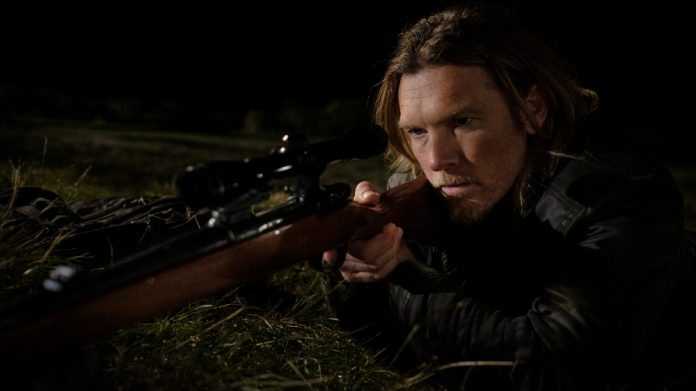We’ve all seen movies that spotlight the ex-solider who’s got to commit one last crime or complete one more mission before he can get on with his life. The trope needs a transfusion and — guess what? — it gets a really good one in the form of Transfusion, a new Australian drama that stars Sam Worthington, Phoebe Tonkin, and Matt Nable, who also wrote and directed the film.
Worthington, currently riding the $2.2 billion wave of Avatar: The Way of Water, plays Ryan, a widower and ex-Special Forces soldier who still mourns his wife, Justine (Tonkin). Since her death in a car accident, he has raised their young son, Billy (played at age eight by Gilbert Bradman and at 16 by Edward Carmody). Billy’s been experiencing trouble at school, Ryan doesn’t feel at home in his sales job, and money is tight… and getting tighter. When Ryan’s old military pal, Johnny (Nable), comes along offering cash if Ryan will help him pull off a few crimes, Ryan reluctantly agrees, but naturally, nothing goes according to plan. Nable complements that part of the story with flashbacks that flesh out Ryan and Justine’s relationship and the tragic car crash that ended her life.
You may not know Nable by name but you might recognize his familiar face, as he played professional rugby in Australia in the 1990s before writing and starring in 2007’s rugby-themed film The Final Winter. His subsequent acting credits — in Australia and America — have included such movies and shows as Killer Elite, Riddick, 1%, Hyde & Seek, Mr. Inbetween, The Twelve, and both Arrow and Legends of Tomorrow, in which he plays notable DC Comics villain Ra’s al Ghul.
Below the Line caught up with Nable over Zoom as he sat in his car somewhere in Sydney, Australia. He eagerly discussed how his career led him to the director’s chair, working with his Hacksaw Ridge co-star Worthington on Transfusion, how the film might upend expectations from genre fans, and his plans for the future.
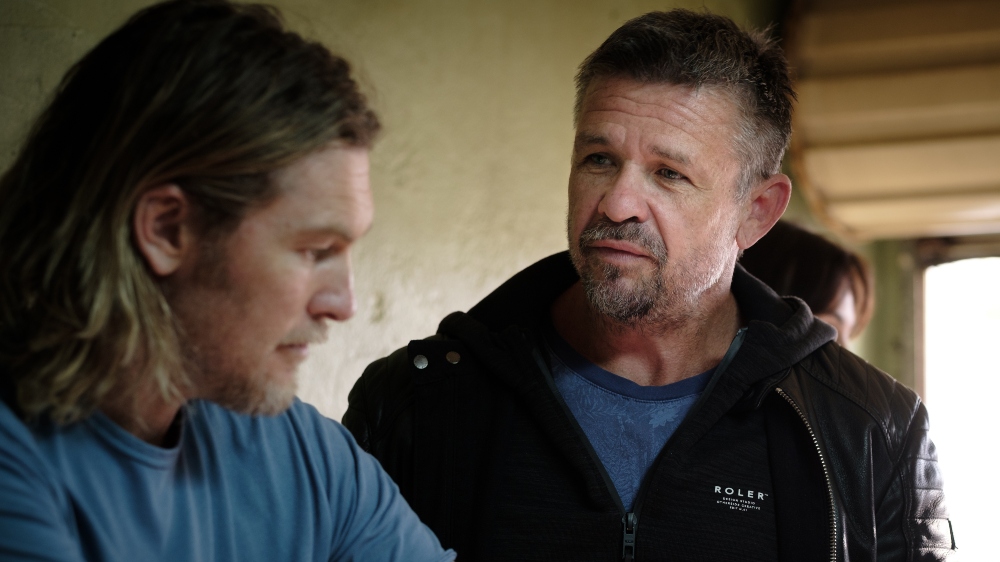
Above the Line: You’ve been acting for 16 or 17 years following a career in sports. Before we get into directing, how naturally did acting come to you?
Matt Nable: To be honest, it just sort of [happened] in a very backward way, really. I’d written something. I was a writer, and I’ve always been a writer, I guess, and then suddenly it got made. I’d written a screenplay. We got the money together. I didn’t know anything about the film industry. This is a long time ago, like you said, 16 or 17 years ago. I put myself in the film. And then all of a sudden, six months after it was released, I was the lead in a pilot over in America. So, look, I’ll be honest. I didn’t know what I was doing for a long, long time. I could argue that I still don’t know what I’m doing.
Acting is like a lot of stuff with art. It’s hard to put a finger on why you can do it, why you can’t do it, the lives you’ve lived before, your emotional reservoir. It’s very, very intangible. So, acting, to me, is something that you have to sort of get your mind around on why it works. There are things that you can do — as I’ve become very, very experienced — [and] processes that you follow. But it’s still hard not to feel like a fraud every now and then just because of the situations that you find yourself in. I’ve constantly grappled with that at different stages.
ATL: What led you to the director’s chair?
Nable: I’d written some films that were directed by other people and are valued very well critically, but they weren’t executed in the way — totally — that I had in my head, as I’d written them. Not to say they weren’t executed well. They were. It was just different. So, the next thing I wrote, in Australia at least, was going to be something that I wanted to direct. That was just the evolution of the process. I just thought, “Well, if I’ve written this, and I’m not completely happy with the way the other things that I wrote turned out, then then you have an opportunity to be in control of that.” That’s how it started, and being around for as long as I have, being on so many film sets, and working closely with the directors, I didn’t feel like I was going to be out of my depth. I felt like I was ready to do that and step into the frame. So, I felt very, very comfortable moving from acting into that realm.
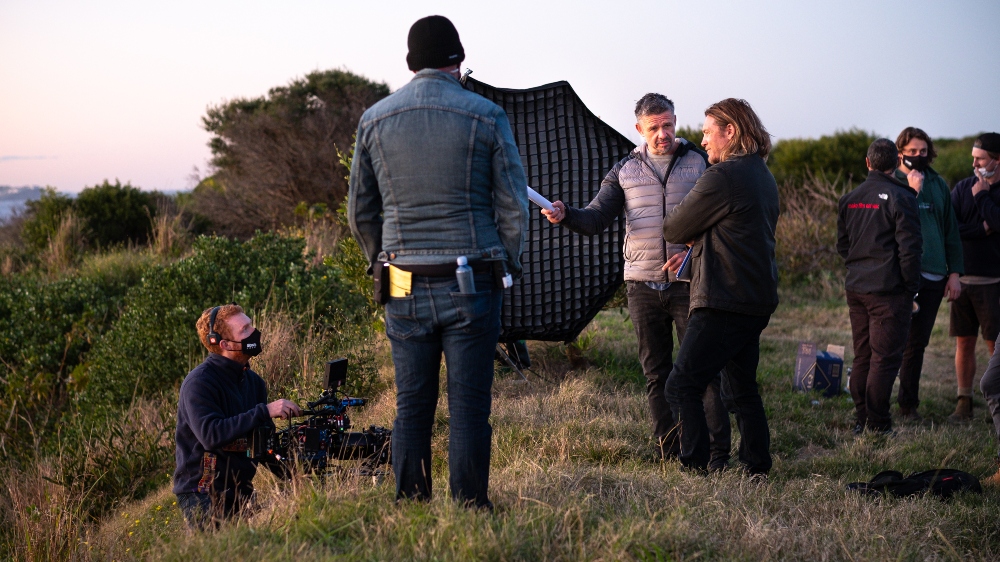
ATL: How did it go? What was it like giving notes to actors and being the guy who had to have every answer for every department on set? Was there a bit of a learning curve?
Nable: Very steep. My process as an actor is, I’m not the guy who’s looking at the shots [or] the frame of the film. I’m listening to the director, and I’m trying to forget everything around me, so I can stay present. As an actor, I’m not the guy who’s acutely learning what everyone else’s job is. I’m not capable of that. So, coming into this, I knew the process of filmmaking really, really well, and then it was just leaning on the heads of department who were really talented and were way better at their job than I am for the simple fact that they’d been doing it for so long.
I said very, very early on, ‘If I don’t know the answer to a question, then I’ll tell you I don’t know, and we’ll figure it out.’ So, I leaned heavily on those guys and, if you’re really kind to those people, as you should be, then you got a tremendous amount of gratuity and people helping you. [I’m a] first-time filmmaker, I’m not all Martin Scorsese, who’s across every aspect of everything.
As far as actors were concerned, 95 percent of that is in the casting. If you get that right, then my opinion is, you shouldn’t be giving too many notes to the actors. I should totally know, well before you step in, what you are all after, and where to pitch it. The thing that I would say to actors is, ‘If you want to try something else, you’ve got time. Go ahead and do it.’ When you’re working with someone like Sam Worthington, who’s been around forever and was really, really invested in the script, he had his own ideas. And well before we started shooting, we rehearsed all that sort of stuff. So, I think, being as experienced as I was, and having written the script, and with my ability to hand [it] over to people who knew better than I, made it a relatively easy experience. [Well,] not an easy experience, but an experience that was less fraught than it might have [been] had I tried to control everything.
BTL: How did the story of Transfusion come to you?
Nable: That was simple. If I was going to write something, I was going to direct it. And I wrote about what I knew, which was being a father, and I’m a child of the army. So, I was around a lot of affected men. That was the genesis.
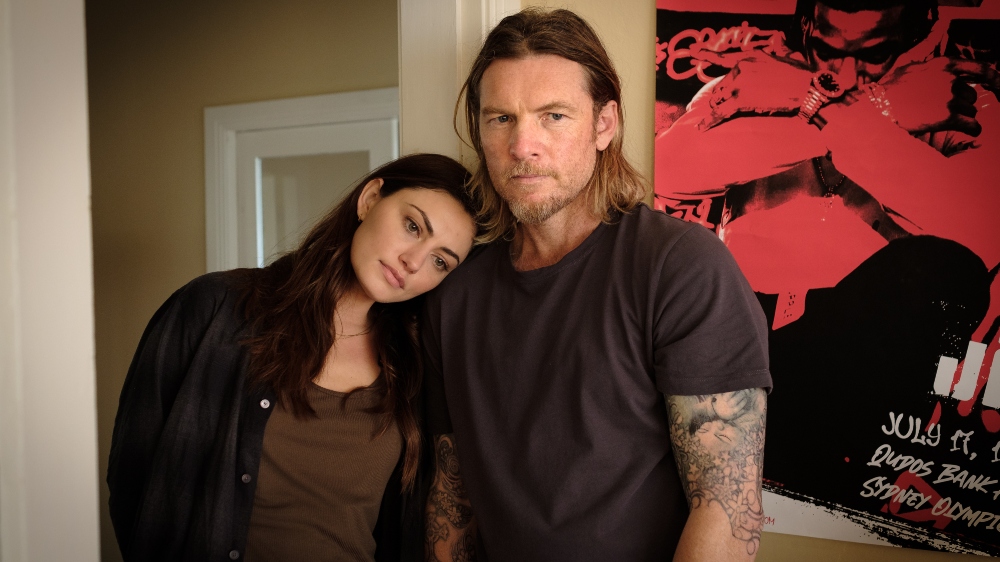
ATL: You worked with Sam Worthington on Hacksaw Ridge. Had you stayed friends with him, and then brought this to him? How did he come into the picture?
Nable: We hadn’t stayed in contact, but we got on really, really well. He was the first actor that we sent it to because he was the guy that I had at the top of the list. Sam was on board very early. He read the script. He responded to it straight away. So, we had that piece of the puzzle quickly.
ATL: No one would have faulted you if you’d chosen strictly to direct the film, but you play a very large and physical role in this as well. Why did you feel compelled to also act in it? And when the actor was difficult or busy, what did the director do?
Nable: I did it because I wrote it for myself, and coming from where I’ve come from, there was a lot of personal history behind the role. Unless we needed more money, where we would have found someone who meant more than I did in that regard, it just didn’t make any sense. There wasn’t anyone I felt could play the role the way I could. Doesn’t mean it could have been better or worse; just the interpretation of the script. So, stepping into that acting role, I had people behind the camera who were really looking after me and were very honest. And I was [with] Sam. The only other scene I’ve got is with his young son, Edward [Carmody]. Sam and I, we’re both very experienced, so it was a relatively easy transition.
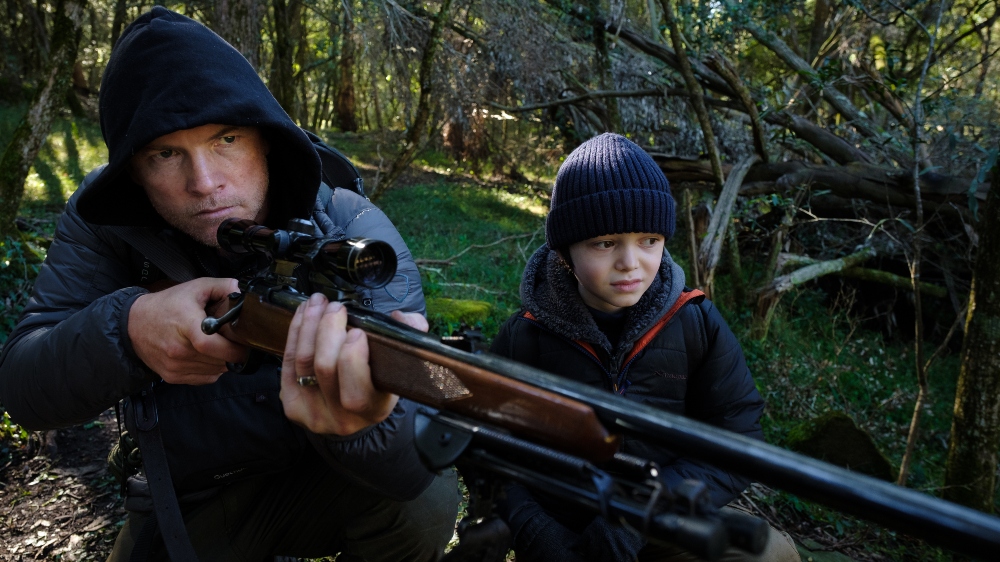
ATL: This is a terrific role for Sam, and the two boys who play his character’s son, Billy, are very good, too. What impressed you about Sam, Edward, and Gilbert, and their performances?
Nable: Sam, obviously, has been around for a long time. I was always wondering what he’d do with a role like this, because he’s a father, and that’s actually a big piece of how his performance is carried out. The fact that he had that in his life made an enormous amount of difference. The two young boys hadn’t done anything before, so that was just going through a casting process. I will say this; the boy who plays the older version, Edward Carmody, Sam took him under his wing in a really, really gentle, compassionate way, teaching him way more than I did. When I saw that relationship growing, I sort of stepped away and let Sam guide young Edward. So, I think Edward and Sam developed this really, really close relationship because of what they were going through together and what Sam was facilitating for Edward. I think that bringing those two guys together was important.
ATL: Based on the title, some people might think this is a horror movie. Watching the movie, some viewers might expect it to veer far more into action or crime movie territory. And yet, this is largely a family drama, sprinkled with violence. How satisfying is it to flip genre expectations?
Nable: Well, I can’t do that, mate, because the way… Look, I can’t control how they market it. It makes sense for them. There are high-stakes elements in this film, so they go after the biggest audiences that watch those types of films. It’s a way bigger audience than if, [as] you said, this is [sold as] a drama. Like I said, I’m not gonna control that. So, people are going to watch this, and if they’re the audience that’s expecting something else, they will be disappointed. But there are people that are also within that group they’re trying to market to that will appreciate this and understand it for what it is. So, it’s a fine line. It’s not like, as a first-time filmmaker, I had any choice or control over [it]. If you’re going there expecting explosions and car chases, then you’re not going to be happy. But if you’re going there and you haven’t been marketed to and you stumble across it, and you like this type of film, then you’ll be really, really satisfied at the end of it.
ATL: So do you consider yourself a director first and foremost now? Do you want to do more of this?
Nable: I’ll do more. But, look, it’ll be only things I’ve written. I don’t think I’m the type of director to be interpreting someone else’s words or script, at this point. I’d be very comfortable doing this again if it’s something that I’ve written, and we’re working towards [that] at the moment. There are a few things both here in Australia and internationally that are getting put together. So, yeah, I’ll be doing it again. You’re only as good as your last effort. So, hopefully, I don’t muck it up.
Transfusion is now playing in select theaters and available to buy or rent on all major VOD/digital platforms. Lionsgate will release the film on Blu-ray and DVD on April 18.


